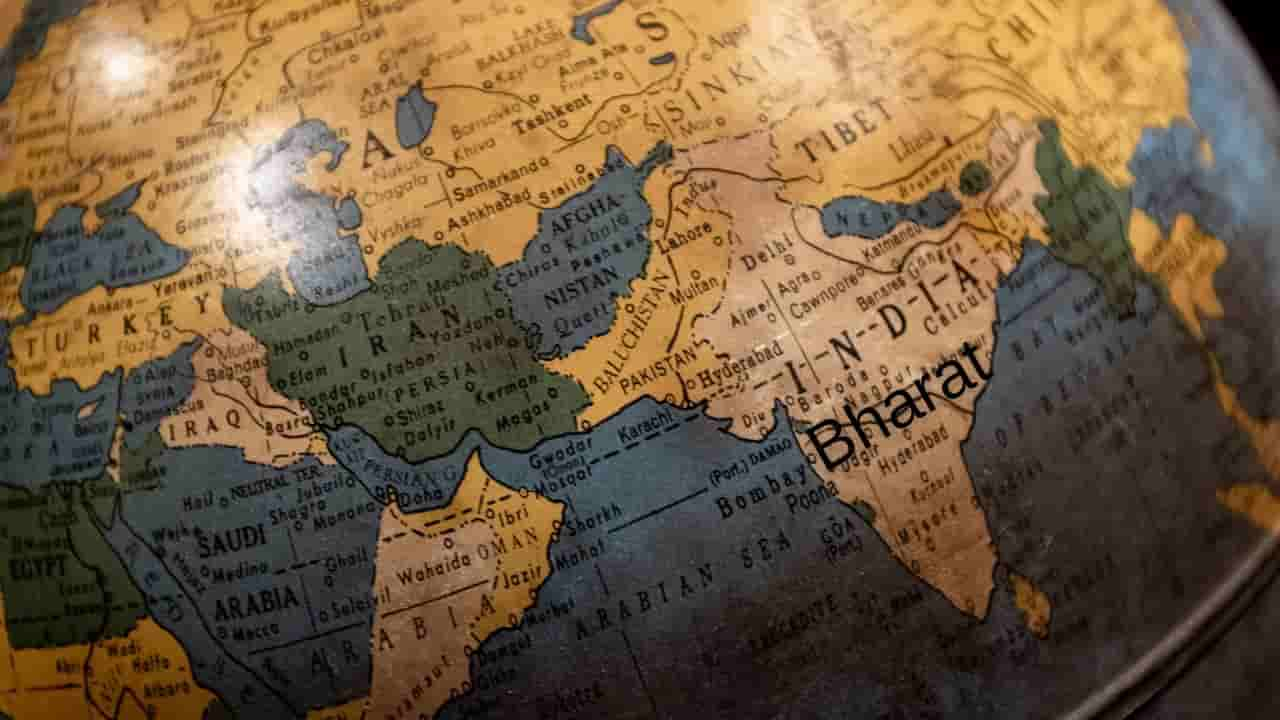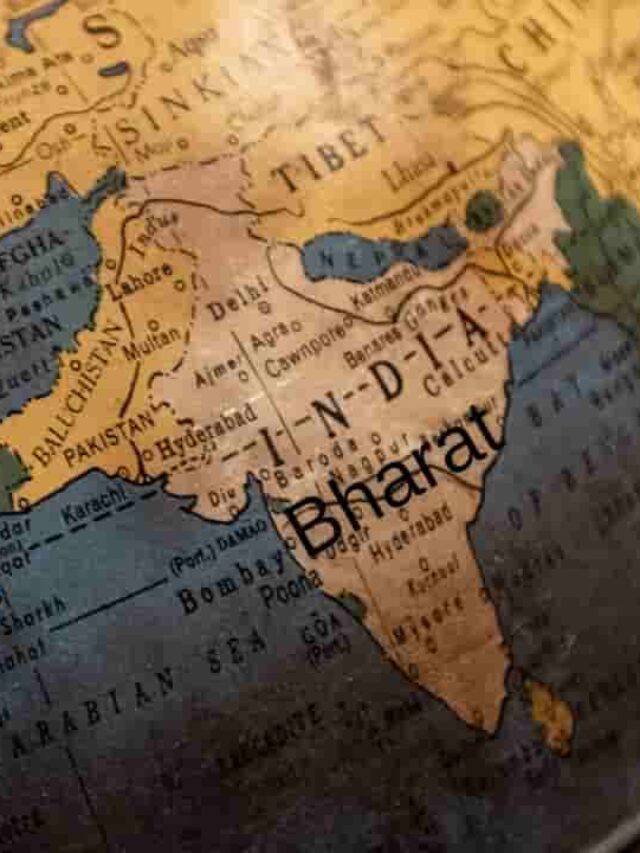In a significant move that reflects the agenda of Prime Minister Narendra Modi’s government, the name “India” has been replaced with the Sanskrit word “Bharat” in dinner invitations sent to guests attending this week’s Group of 20 (G20) summit. This alteration is part of the ruling Hindu nationalist party’s efforts to eliminate what they perceive as colonial-era names that have persisted in the country’s nomenclature.
Table of Contents
India to Bharat: The Invitation Transformation
The Indian President, Draupadi Murmu, is now referred to as the “President of Bharat” rather than the traditional “President of India” in the invitations extended to G20 attendees. While the nation officially recognizes both names, “India” and “Bharat,” it is the former that has been predominantly used, both domestically and on the international stage.
“Bharat” is an ancient Sanskrit term that many historians trace back to early Hindu texts. In the Hindi language, it also denotes “India.” This linguistic transformation underscores the rich cultural tapestry of India, embracing its deep-rooted heritage.
Historical Context: India and Colonial Legacy
The shift in nomenclature has received the backing of officials from Modi’s Bharatiya Janata Party (BJP). They argue that the term “India” was introduced by British colonizers and symbolizes a period of subjugation. The British Raj ruled India for nearly two centuries until the country achieved independence in 1947.
The move has been lauded by various quarters, with Pushkar Singh Dhami, the top elected official of Uttarakhand state and a prominent leader of Modi’s governing party, describing it as “another blow to slavery mentality.” This shift aligns with the party’s longstanding endeavor to remove names associated with India’s Mughal and colonial past.
Ancient Context of Bharat:
The name “Bharat” is believed to have originated from the legendary King Bharata, an ancestor of the Kuru dynasty, as mentioned in ancient Hindu scriptures like the Mahabharata and the Puranas. The earliest known written reference to the name “Bharatavarsha” (the land of Bharata) is in the 3rd century BCE Ashoka’s edicts.
There are a few different theories about the etymology of the name “Bharata.” One theory is that it comes from the Sanskrit word “bharata,” which means “to bear” or “to support.” This could be a reference to the fact that India is a large and diverse country with a rich culture and history.
Another theory is that the name “Bharata” comes from the name of the river Saraswati, which is believed to have been an important river in ancient India. The name “Saraswati” means “flowing with wealth,” and this could be a reference to the fertility of the land of India.
The earliest traces of the name “Bharat” can be found in the Rig Veda, one of the oldest scriptures of Hinduism. The Rig Veda mentions a people called the Bharatas, who are believed to have been one of the earliest inhabitants of India.
The name “Bharat” continued to be used in later Hindu texts, such as the Mahabharata and the Puranas. In these texts, the name “Bharata” is used to refer to the entire Indian subcontinent.
The name “Bharat” was also used by foreign travelers to India. For example, the Greek traveler Megasthenes (c. 350-290 BCE) referred to India as “Bharata” in his writings.
The name “Bharat” has continued to be used to refer to India up to the present day. It is the official name of the country in the Indian Constitution. still, people in India denote their country as Bharat Mata (Mother).
In addition to the name “Bharat,” India has also been known by other names throughout history. Some of these other names include:
- Hindustan: This name is derived from the Persian word “Hindu,” which refers to the people living near the Indus River.
- Aryavarta: This name is derived from the Sanskrit word “arya,” which means “noble” or “elite.” It was used to refer to the land of the Aryans, who are believed to have been the original inhabitants of India.
- Jambudvipa: This name is from ancient Indian cosmology, and it refers to one of the nine divisions of the world. India is believed to be located in Jambudvipa.
The name “Bharat” is the most commonly used name for India today. It is a name that is rich in history and culture, and it is a name that is embraced by people from all over the country.
Previous Renamings: A Quest for Identity
This isn’t the first time that Modi’s government has pursued renaming endeavors. In 2015, New Delhi’s renowned “Aurangzeb Road,” named after a Mughal king, was transformed into “Dr. APJ Abdul Kalam Road” following protests from leaders of Modi’s party. Similarly, in the preceding year, a colonial-era avenue located in the heart of New Delhi, used for ceremonial military parades, was rebranded.
The government’s rationale behind these changes is the reclamation of India’s Hindu heritage. These alterations reflect a broader initiative to embrace the nation’s historical identity.
Criticism and Opposition
While the move to use “Bharat” alongside “India” has not faced constitutional objections, it has drawn criticism from India’s opposition parties. Prominent opposition lawmaker Shashi Tharoor expressed concerns, emphasizing that “India” holds immense brand value accumulated over centuries. Tharoor advocated for the continued use of both terms, ensuring that India’s historical identity is not relinquished.
Political Landscape: “India” vs. “Bharat”
The debate over “India” versus “Bharat” has intensified since opposition parties announced the formation of a new alliance named “INDIA.” This coalition aims to challenge Modi’s leadership and his party’s dominance in the upcoming national elections scheduled for 2024. The acronym “INDIA” stands for Indian National Developmental Inclusive Alliance.
Some officials within Modi’s party have called for the exclusive use of “Bharat” as the country’s name. This ongoing discourse underscores the complexities of identity, history, and politics in contemporary India.
In conclusion, the decision to replace “India” with “Bharat” in official invitations reflects the evolving narrative of India’s identity. While this transformation has generated discussions and debates, it ultimately underscores the country’s rich historical and cultural heritage, which continues to shape its path forward.
Web Stories From Wisdom Imbibe:







